Environmental Footprint
One of our food system’s greatest challenges is meeting increasing global demand for food while decreasing its environmental footprint.
That is why we are a carbon neutral company and are working on transformative projects to minimize our impact on the climate, and preserve, restore and regenerate natural resources and the land.
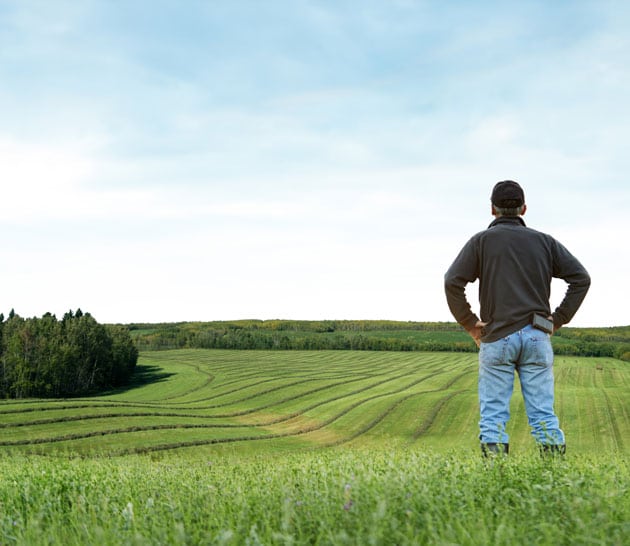

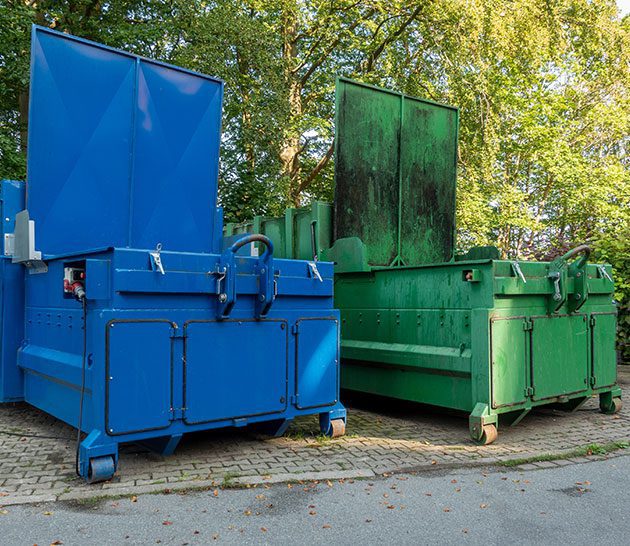

We are committed to environmental sustainability
Maple Leaf Foods Environmental Sustainability Commitment is a policy that guides our environmental sustainability strategy and day-to-day practices. This policy has been approved by the Board of Directors’ Safety and Sustainability Committee and is monitored on a regular basis by the Committee, including compliance with regulatory requirements and the use of internal environmental specialists and independent, external environmental experts.
33%
18%
31%
14%
4%
To reduce our supply chain emissions, we are investing in
Regenerative Agriculture
Regenerative agriculture is a set of farming principles and practices that regenerate the land, capture carbon from the atmosphere and store it in the soil, increase biodiversity, improve soil health, boost farmer livelihoods, and enhance landscape resilience.
For the third year, we teamed up with Nutrien, a Canadian company and the world’s largest provider of crop inputs, to expand our work in regenerative agriculture and participate in their carbon program that aims to provide end-to-end support for growers, drives sustainability and boosts profitability. This work helps meet our goal of sourcing sustainable feed for our animals by reducing the carbon footprint of the crops we purchase. We have scaled from 19,000 acres to 160,000 acres and doubled our investments in regenerative agriculture practices year-over-year for the past 3 years.
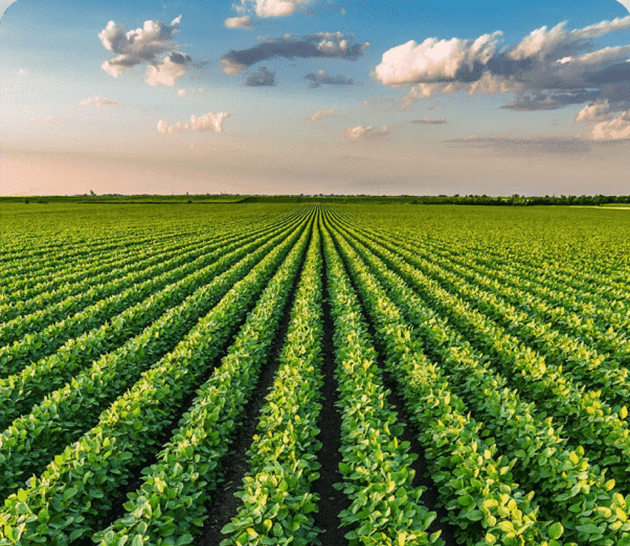

We have scaled from 19,000 acres to 160,000 acres and doubled our investments in regenerative agriculture practices year-over-year for the past 3 years.


Anaerobic Digestion
Anaerobic digestion is a process through which bacteria breaks down organic matter — such as animal manure, food wastes, or wastewater — and converts it into renewable natural gas (RNG) and digestate. The RNG can be used as a clean energy source by the user for heat or power generation, or used as transportation fuel. The digestate is returned to farms to be spread on fields similarly as the manure is today, but with reduced odours and pathogen loads and an improved nutrient profile.
Anaerobic digestion can create circular economies by converting organic waste streams into useful renewable fuel and other commodities that support ongoing pork production.
We are founding members of leading-edge industry organizations, like CANZA
The Canadian Alliance for Net-Zero Agri-food (CANZA) is a national, industry-led, multi-stakeholder alliance of RBC, Maple Leaf Foods, Nutrien, McCain Foods, Loblaw and BCG founded by The Natural Step Canada and the Smart Prosperity Institute, in collaboration with the Arrell Food Institute at the University of Guelph. CANZA is committed to driving sustainable outcomes in Canada’s agri-food sector. As an integral driver of the Canadian economy, this sector is also a significant emitter of greenhouse gases. CANZA promotes the adoption of regenerative agriculture and carbon farming practices and building a network of anaerobic digesters, offering an opportunity to transform the sector and create a circular, net-zero agri-food supply value. By collaborating with farmers to achieve nature-positive outcomes, the alliance is committed to building a more sustainable future for agriculture.
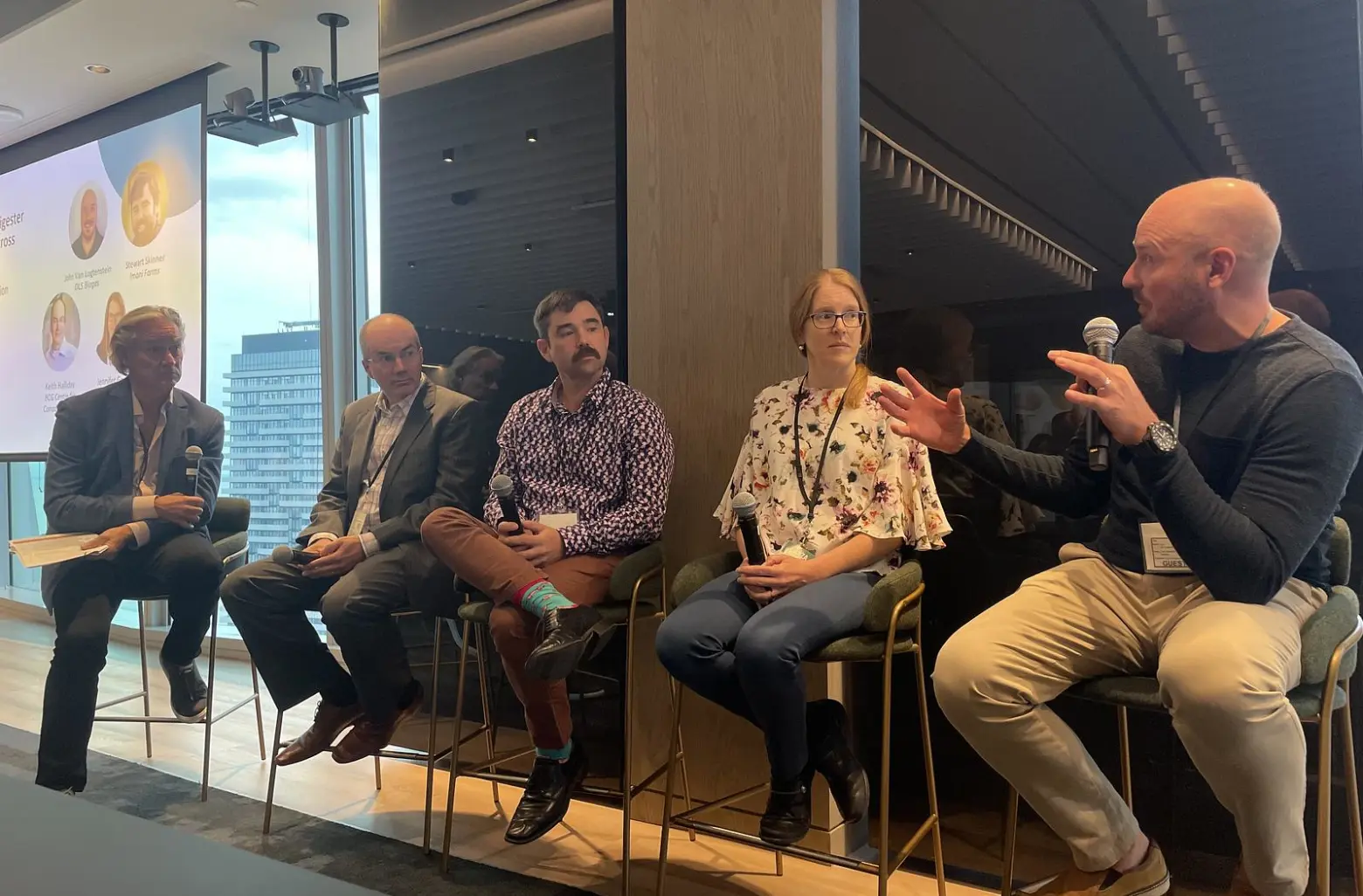
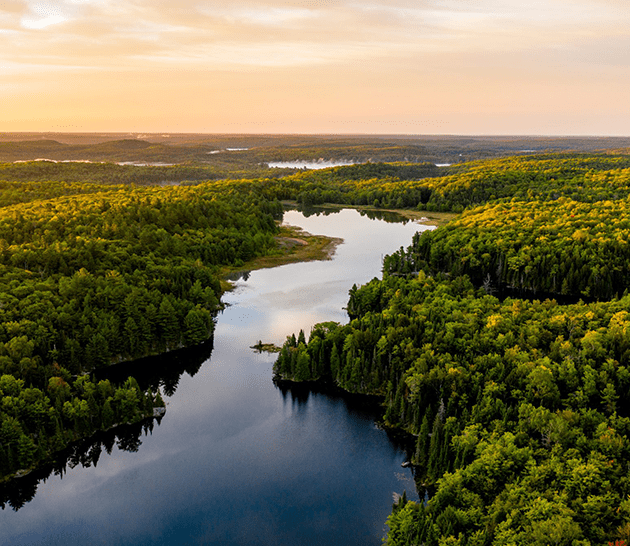

We are assessing our impact on nature
We recognize that it is becoming increasingly important for companies to assess, address and report on the impacts that their operations and supply chain have on deforestation, biodiversity and nature.
That is why we have contracted an experienced third-party organization to conduct a nature footprint and risk assessment of our value chain applying in-depth knowledge and geospatial intelligence. This assessment will cover impact on land degradation, deforestation, soil pollution, water stress and water pollution with a science-based approach that follows the Science Based Targets for Nature (SBTN) steps 1 and 2 and the Accountability Framework developed by the Accountability Framework initiative (AFi).
The assessment will be complete in 2024 and we will work to develop a nature-related strategy based on the findings.
We are supporting Canadian organizations like, World Wildlife Fund Canada, to conduct leading edge research
We support organizations like WWF-Canada to introduce leading edge research and solutions that help stabilize the climate, preserve natural resources, and protect and regenerate our Canadian land.
In 2021, we provided funding to support WWF-Canada and the Remote Sensing Lab at McMaster University to create the first-ever map that shows how much carbon is stored in landscapes across Canada to ensure these lands are protected and preserved. More recently, we provided funding to support WWF-Canada’s latest research to identify landscapes in Canada that have the greatest potential to benefit from restoration.

Integrated Report
We’re documenting all the changes we’re making. See our progress in our latest Integrated Report.